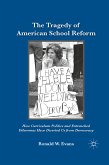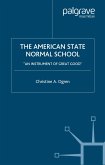Dieser Download kann aus rechtlichen Gründen nur mit Rechnungsadresse in A, B, BG, CY, CZ, D, DK, EW, E, FIN, F, GR, HR, H, IRL, I, LT, L, LR, M, NL, PL, P, R, S, SLO, SK ausgeliefert werden.
"Evans's latest book, like his earlier works, provides a meticulously researched history of social studies reform written in a style that is accessible to both scholars and lay readers. His narrative of the origins and reforms called for in the 'new social studies,' along with the concluding comparison to today's attempted educational reform movement, provides a cautionary tale about the motivations of politicians, reformers, and other political stakeholders as they attempt to change the direction of America's social studies/history program." - Barbara Slater Stern, professor, College of Education, James Madison University









